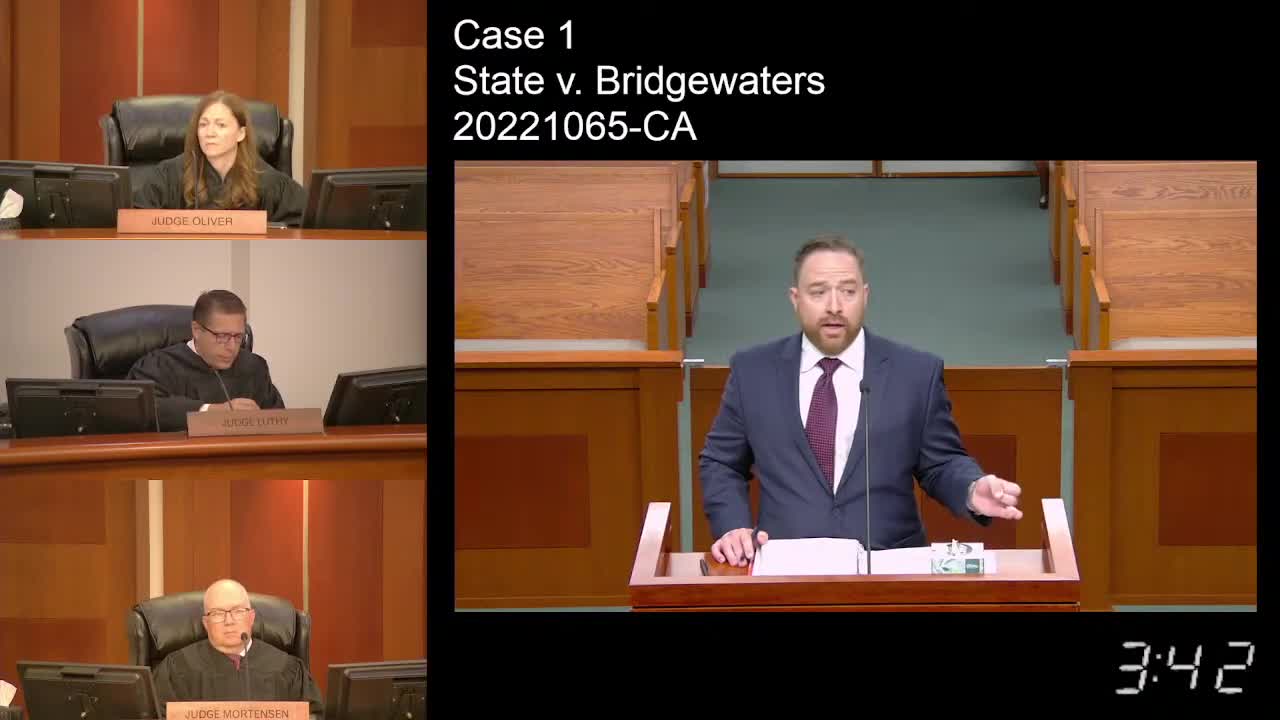Court Examines Implied Waiver and Right to Counsel in Bridgewater Case
August 07, 2025 | Utah Court of Appeals Live Stream, Utah Appellate Court, Utah Judicial Branch, Utah
Thanks to Excel Chiropractic and Scribe from Workplace AI , all articles about Utah are free for you to enjoy throughout 2025!

This article was created by AI using a video recording of the meeting. It summarizes the key points discussed, but for full details and context, please refer to the video of the full meeting. Link to Full Meeting
As the arguments unfolded, one attorney emphasized the necessity of a clear warning from the court regarding the consequences of continued disruptive behavior. "An implied waiver occurs when the court specifically says, this is a warning," he stated, highlighting that without such a warning, the defendant's rights could be unjustly compromised. The attorney argued that the court had failed to provide this essential notice, which is crucial for ensuring that defendants are fully aware of the stakes involved in their actions.
The conversation took a deeper dive into the legal precedents that govern these situations. The attorney referenced the case of Pedoki, suggesting that the circumstances in Bridgewaters closely mirrored those in the earlier case. He contended that if the court intended to rule based on delays attributed to Mr. Bridgewaters, it needed to conduct a thorough inquiry and issue a formal warning during the hearing. This, he argued, was not merely procedural but a fundamental aspect of upholding the defendant's rights.
The panel also grappled with the concept of coexistent rights—the right to counsel versus the right to self-representation. The attorney raised a pivotal question: if the court perceived Mr. Bridgewaters' actions as a tactic to delay proceedings, did that imply an implicit ruling against his right to counsel? This inquiry underscored the delicate balance courts must maintain in protecting defendants' rights while ensuring the integrity of the judicial process.
As the session concluded, the implications of the discussions loomed large. The court's decisions in this case could set significant precedents regarding the treatment of defendants who engage in disruptive behavior and the necessary safeguards to protect their rights. The outcome remains to be seen, but the dialogue highlighted the ongoing challenges within the legal system to navigate the complexities of justice and fairness.
Converted from 20221065- State v. Bridgewaters audio file meeting on August 07, 2025
Link to Full Meeting
Comments
View full meeting
This article is based on a recent meeting—watch the full video and explore the complete transcript for deeper insights into the discussion.
View full meeting

